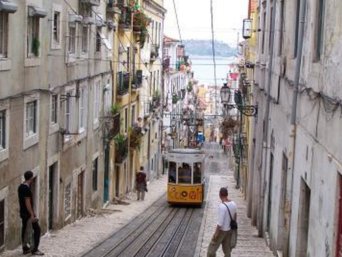- About
- Topics
- Story
- In-Depth
- Picks
- Opinion
- News
- Donate
- Signup for our newsletterOur Editors' Best Picks.Send
Read, Debate: Engage.
Lisbon is the latest destination discovered by mass tourism. Although recent, the phenomena is already drastically changing the dynamics of the Portuguese capital, especially in the historic quarter.
In the past three years, residents have observed hotels, short stay apartments and souvenir shops taking over the city´s traditional neighbourhoods, such as Alfama, Baixa and Bairro Alto. Consequently, locals have been priced out by the hike in house prices, often forced to relocate in the less-desirable outskirts, a process typical in gentrification.
Some argue that the rise in tourism in Lisbon has led to economic recovery and job creation. Areas of historical heritage which for many years have been left abandoned are now being regenerated and rejuvenated, witnessing an influx of more affluent people reusing buildings for bars and restaurants, offices and living spaces.
Nevertheless such redevelopment shouldn´t come at the expense of existing residents. Complaints are now commonly heard over landlords evicting people in order to earn more lucratively from incoming tourists. Whilst, entire blocks of flats have been converted into flats for short-term renting, fuelled by the success of companies like Airbnb, finding houses for long-term renting in the centre has become almost an impossibility.
The phenomena is not new, which people from cities such as London, Venice, Amsterdam, Berlin or Barcelona know all so well. The Catalan capital, home to 2 million people, receives 7.5 million tourists each year. To prevent the city from becoming a “souvenir shop for tourists”, mayor Ada Colau, a former housing activist, has implemented measures that include the freezing of new licences for hotels and private apartments. In Berlin, new rent-control legislation is also trying to halt uncontrollably rising prices.
Now these same worries have landed in the Portuguese capital. It’s hoped that Lisbon city councillors can learn from other European cities so that they can manage regeneration in a sustainable way, avoiding an irreversible process of gentrification while maintaining Lisbon’s identity and culture.
